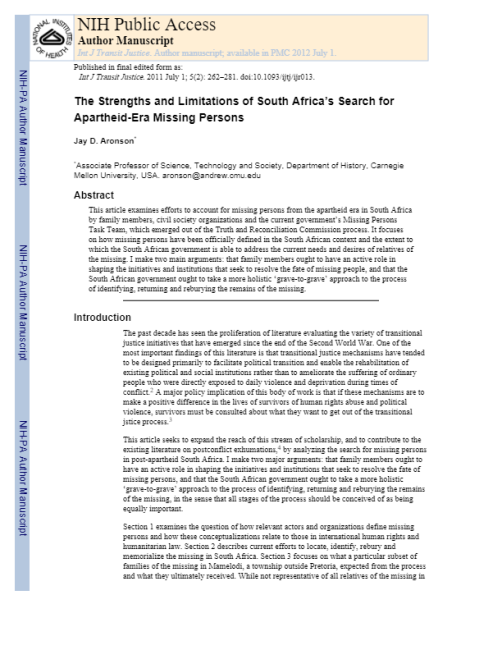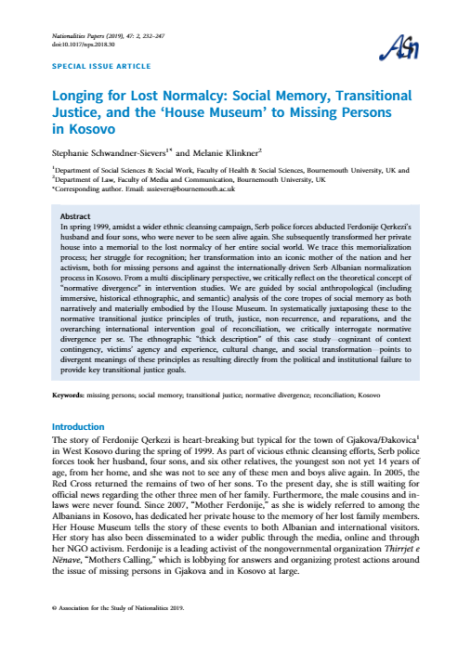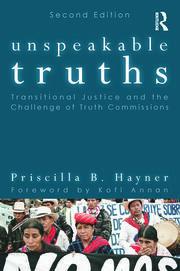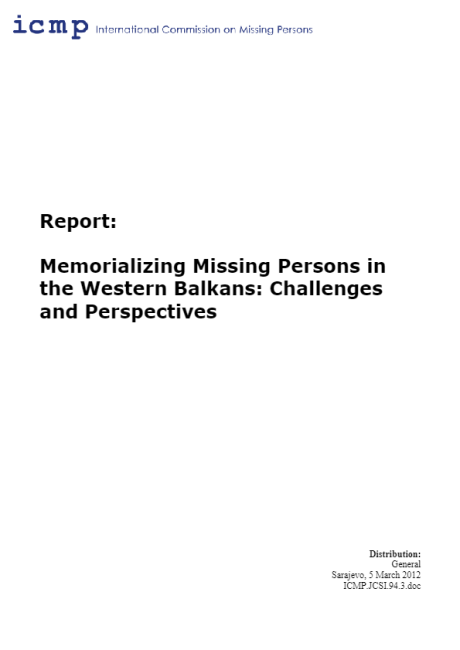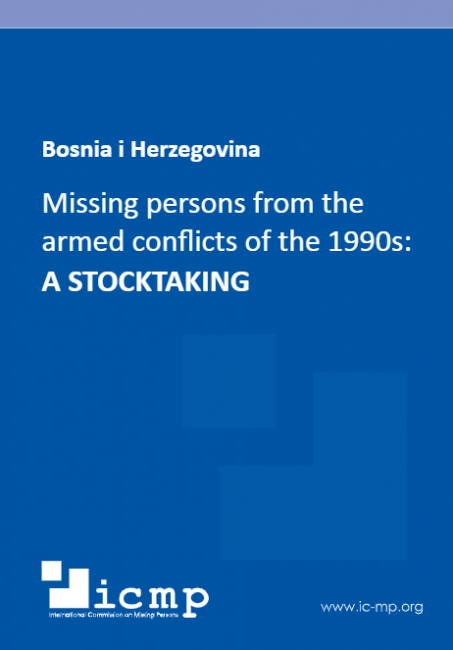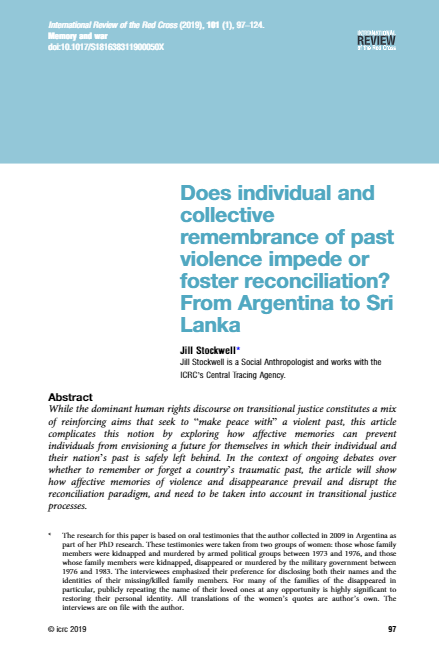
Journal
Does individual and collective remembrance of past violence impede or foster reconciliation? From Argentina to Sri Lanka
International Review of the Red Cross (2019), 101 (1), 97–124.Memory and wardoi:10.1017/S181638311900050X
Author
Jill Stockwell
Publication Year
2019
Region
Asia and the Pacific
/
The Americas
Thematic Area
Families
/
Law & Policies
Topic
Memorialization
/
Reconciliation
/
Right to Know/Truth
/
Transitional Justice
Access
Open access
While the dominant human rights discourse on transitional justice constitutes a mix of reinforcing aims that seek to “make peace with” a violent past, this article complicates this notion by exploring how affective memories can prevent individuals from envisioning a future for themselves in which their individual and their nation’s past is safely left behind. In the context of ongoing debates over whether to remember or forget a country’s traumatic past, the article will show how affective memories of violence and disappearance prevail and disrupt the reconciliation paradigm, and need to be taken into account in transitional justice processes.
Share


